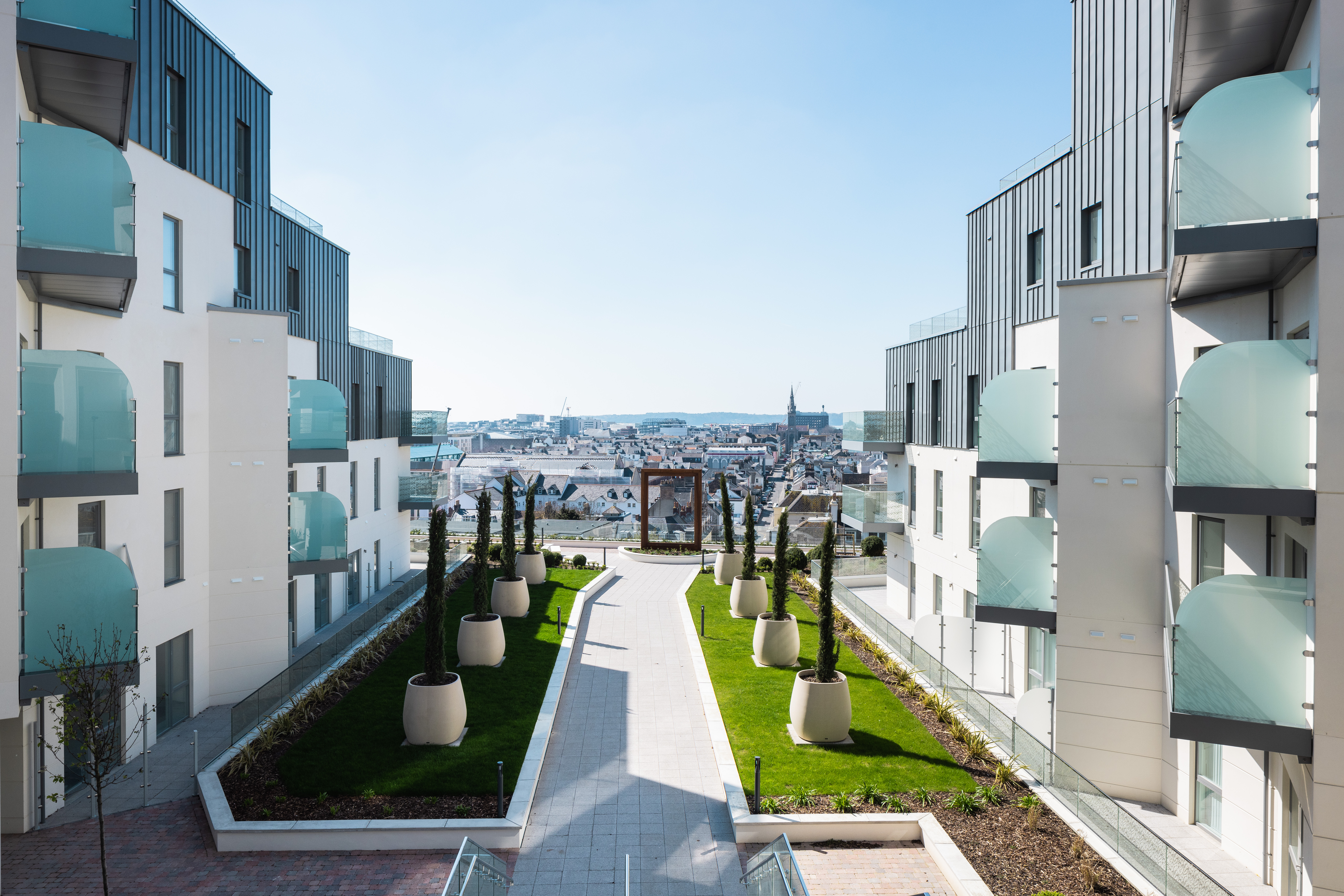Residential calculators
Use our calculators to determine the possible stamp duty, land transaction tax, and enveloped property tax payable on Jersey mortgages, purchases and leases
No Content Set
Exception:
Website.Models.ViewModels.Components.General.Banners.BannerComponentVm

Navigating first-time buyer benefits in Jersey can be complex, but Ogier is here to simplify the process.
We help you understand and access reduced rates, maximising the financial advantages available. Whether you’re purchasing freehold, flying freehold, share transfer, or leasehold property in Jersey, our team is dedicated to supporting your journey to homeownership.
To benefit from first-time buyer status in Jersey you must:
Meeting these criteria currently allows you to:
There are a number of developments in Jersey where the properties can only be owned by first-time buyers. This term includes both true first-time buyers and those who fall within the exemptions.
Whether someone qualifies for an exemption is determined on a case-by-case basis by the housing minister and depends on individual circumstances.
If you fall into one of the categories listed below, you may still be granted permission even if you are not strictly a first-time buyer.
It’s important to note that if you are eligible to purchase a first-time buyer's property using one of these listed exemptions, you will not be given the first-time buyer stamp duty reduction.
Read more on first time buyer options on the Government of Jersey's website.
When people discuss owning property outright, they’re usually referring to freehold ownership. "Freehold" is the most traditional and common way to own property in Jersey. It means you own the land and any buildings on it forever, or "in perpetuity".
It is possible for a freehold property to be burdened with certain obligations for example rights that others may have over your property, such as a path across it or a right to use a section for a specific time (life-interests or usufructs)
As a freehold owner, you have complete ownership over the property and the land – everything above and below it, within its boundaries. This means you're also fully responsible for its upkeep and any maintenance costs.
It’s important to note that freehold property is considered "realty". Under Jersey law this is treated differently to other assets so we recommend you create a separate will specifically relating to the real estate upon your passing.
In Jersey, "flying freehold" refers to a unique way of owning property, often used for flats or sometimes commercial spaces within mixed developments. When you buy a flying freehold property, you're purchasing a "lot" or "share". This means you own your specific flat or unit, plus a shared interest in the building, including the land underneath it, common areas such as hallways and gardens. Essentially, flying freehold properties are treated as separate pieces of land under the law, allowing them to be mortgaged and dealt with like any other piece of real estate.
Owners of flying freehold properties are part of a collective group, forming an association to manage the building's shared aspects. Decisions regarding property maintenance, building insurance, and other relevant matters are subsequently managed by this association.
In Jersey, "leasehold" refers to a way of owning property where you have the right to use and occupy the property for a long period, typically over nine years, through a contract known as a lease. This method is more common for commercial spaces and is less frequently used for residential properties.
This allows these longer leases, or contract leases, to be used as security for a loan, provided the lease permits it or the landlord agrees to the arrangement. The main difference between leasehold and freehold ownership is who owns the land. With a leasehold, you own the rights for a set period but not the land the property is built on.
Use our calculators to determine the possible stamp duty, land transaction tax, and enveloped property tax payable on Jersey mortgages, purchases and leases
Ready to take your next property step? Request a quote from our expert team.
Protect your estate and secure your legacy with Ogier's make your will online service.
No Content Set
Exception:
Website.Models.ViewModels.Blocks.SiteBlocks.CookiePolicySiteBlockVm